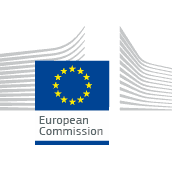
Innovative technologies for safety and excellence in decommissioning, including robotics and artificial intelligence
Deadline: Nov 8, 2023
CALL EXPIRED
CALL EXPIRED
Innovation
Environment
Waste Management
International Cooperation
Robotics
Transport
Research
Artificial Intelligence
Project results are expected to contribute to all of the following expected outcomes:
- improve safety in the decommissioning of nuclear systems, minimising operational waste, dismantling waste and improving the environmental remediation of nuclear facilities;
- fulfil decommissioning requirements of the Nuclear Safety Directive[1], Basic Safety Standards Directive[2] and Radioactive Waste Management Directive[3];
- contribute to excellence in decommissioning, while developing cutting-edge technological innovation, competitive and resilient industry initiatives, future-proof jobs and skills for a fair transition.
Decommissioning is currently recognised as a fixed part of the nuclear facilities’ life cycle. This cannot be neglected when implementing a sustainable energy future. This also reflects the public interest and the contemporary principle of environmental sustainability related to any industrial activity. Though various dismantling techniques are at the level of industrial maturity, there are still specific challenges to achieving high safety standards, efficiency and cost-effectiveness of dismantling operations.
As identified in the Euratom project portfolio and the SHARE project[4], a roadmap for research and innovation in decommissioning has been published based on the needs and gaps identified across the whole decommissioning value chain and built on the input of the international stakeholder community,. The thematic areas that should be prioritised are in situ waste characterisation and segregation, robotics and remote systems, difficult to measure radionuclides, clearance of surfaces and structures, cost estimation and knowledge management. In particular, specific needs include developing remote, integrated and automatic technologies for waste characterisation and segregation, but also modular and mobile systems and robotic solutions to address the hard-to-access areas in a new and cost-effective way and developing data collection protocols and a global cost estimation methodology.
Decommissioning is a multidisciplinary process and experts anticipate that ‘open innovation beyond technology’ and digital and robotics’ technologies can provide crucial insights for the overall planning and implementation of decommissioning projects. Establishing guidelines and sharing best practices on the implementation of digital technologies like Building Information Modelling, digital twins and artificial intelligence is also expected to improve key decommissioning tasks. International cooperation will result in a relative harmonisation of decommissioning waste management systems, including its packaging, transport and storage. Harmonisation of clearance criteria for radioactive materials from decommissioning will also improve recycling in and out of the nuclear sector.
In addition, Euratom research supported here will also benefit from JRC support as the EU-mandated actor in helping create knowledge, share experience and spread knowledge among different EU stakeholders in a coordinated way[5]. As a result, it should build regulators’ trust in introducing innovative and modern techniques by boosting safety and efficiency and improving the evaluation of safety margins and licensing procedures.
[1] Council Directive 2009/71/Euratom of 25 June 2009 establishing a Community framework for the nuclear safety of nuclear installations ((OJ L 172, 2.7.2009, p.18), as amended by Council Directive 2014/87/Euratom of 8 July 2014 amending Directive 2009/71/Euratom establishing a Community framework for the nuclear safety of nuclear installations (OJ L 219, 25.7.2014, p. 42).
[2] Council Directive 2013/59/Euratom of 5 December 2013 laying down basic safety standards for protection against the dangers arising from exposure to ionising radiation, and repealing Directives 89/618/Euratom, 90/641/Euratom, 96/29/Euratom, 97/43/Euratom and 2003/122/Euratom.
[3] Council Directive 2011/70/Euratom of 19July 2011 establishing a Community framework for the responsible and safe management of spent fuel and radioactive waste (OJ L 199, 2.8.2011, p. 48–56)
[4] Euratom SHARE project (2019-22): https://share-h2020.eu/ and https://cordis.europa.eu/project/id/847626
[5] Council Regulation (Euratom) 2021/100 of 25 January 2021, covering the period 2021-27, establishing a dedicated financial programme for the decommissioning of nuclear facilities and the management of radioactive waste: https://eur-lex.europa.eu/eli/reg/2021/100/oj
Public link: Only for registered users
 Euratom Research and Training Programme (EURATOM)
Euratom Research and Training Programme (EURATOM)
Please Log In to See This Section